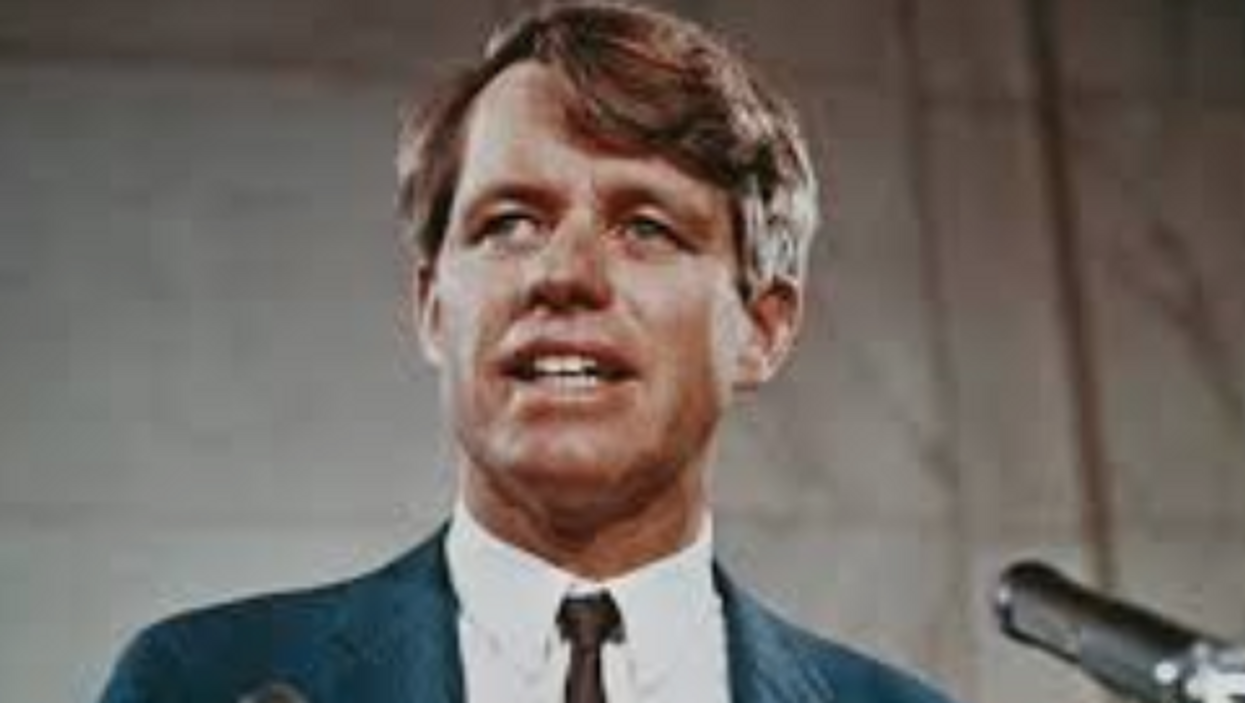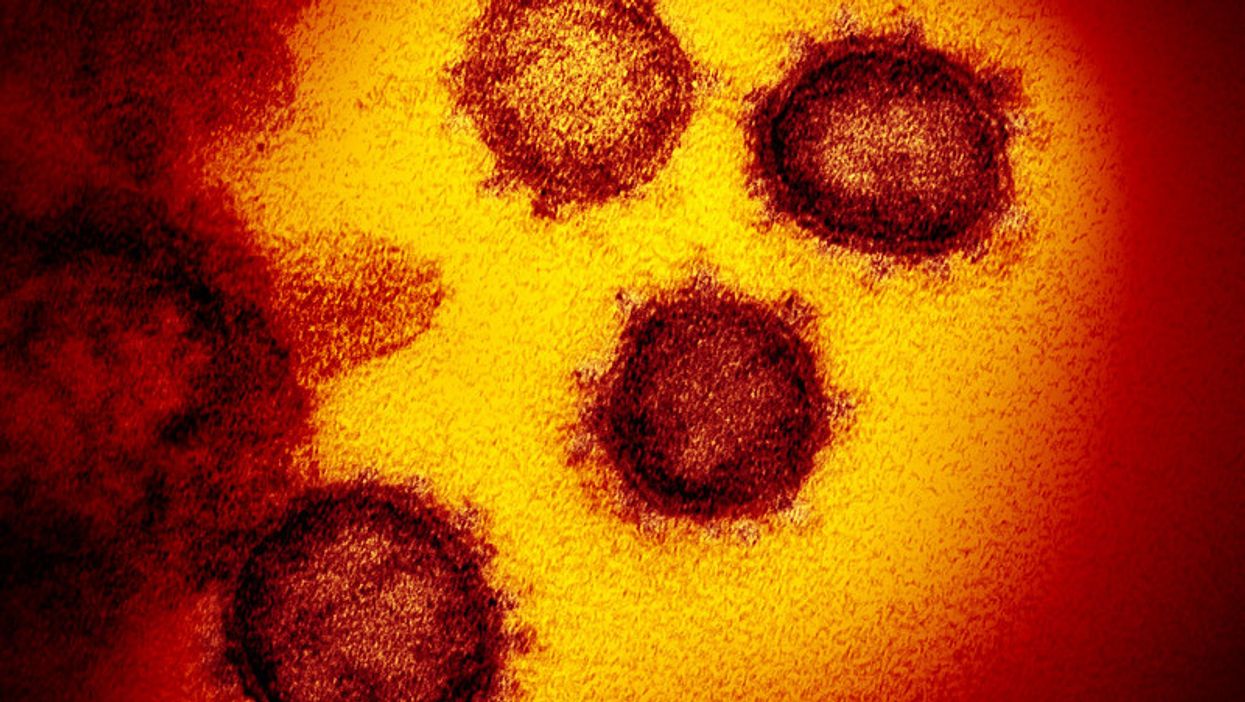The 1968 RFK Speech On Violence That Joe Biden Should Deliver Now
While Joe Biden's Democratic nomination acceptance speech was well-crafted, deftly delivered, and widely viewed (by many more Americans than watched Donald Trump's), the most important speech of his career—and of the 2020 Presidential Campaign—has already been written, and is just waiting for Biden's touch of humanity.
That speech, delivered by the late Robert F. Kennedy on April 5, 1968, at the Cleveland City Club, has long been overshadowed by the powerful and historic speech he made the night before in Indianapolis, when he learned that Dr. Martin Luther King, Jr. was dead. Kennedy's extraordinarily emotional speech, sharing the pain of losing his own brother to an assassin's bullet, helped keep Indianapolis peaceful that night, when cities across the country erupted in grief, anger, and violence to the news of Dr.King's killing.
While the Indianapolis speech by RFK is available all over YouTube, and taught in speech, communications, and history programs across the country as a shining example of public speaking having an immediate, positive impact, the mostly forgotten address he delivered at the Cleveland City Club the following day—to a mostly wealthy, white audience — is far more relevant to this dangerous moment in our nation's history. The Biden-Harris campaign would be wise to adapt it for delivery immediately, in a troubled American city like Kenosha or Minneapolis.
The Biden-Harris team can get the full text of RFK's speech from the John F, Kennedy Library archives (or use this text, with some italicized additions and transitions of my own).:
…. I have saved this one opportunity to speak briefly to you about this mindless menace of violence in America which again stains our land and every one of our lives. (The killing of George Floyd and Breanna Taylor, and the shooting of Jacob Blake are but the most current examples).
This is not the concern of any one race. The victims of the violence are black and white, rich and poor, young and old, famous and unknown. They are, most important of all, human beings whom other human beings loved and needed. No one - no matter where he lives or what he does - can be certain who will suffer from some senseless act of bloodshed. And yet it goes on and on.
Whenever any American's life is taken by another American unnecessarily - whether it is done in the name of the law or in the defiance of law, by one man or a gang, in cold blood or in passion, in an attack of violence or in response to violence - whenever we tear at the fabric of life which another man has painfully and clumsily woven for himself and his children, the whole nation is degraded.
"Among free men," said Abraham Lincoln, "there can be no successful appeal from the ballot to the bullet; and those who take such appeal are sure to lose their cause and pay the costs."
Yet we seemingly tolerate a rising level of violence that ignores our common humanity and our claims to civilization alike. We calmly accept newspaper reports of civilian slaughter in far off lands, (and of the clearly preventable deaths of more than 180,000 of our fellow Americans by a current killer called COVID.)
We make it easy for men of all shades of sanity to acquire weapons and ammunition they desire (and to turn those deadly weapons on schools filled with young children, concerts, or stores filled with friends and neighbors, or on crowds of law-abiding Americans of all ages, backgrounds and skin color, exercising their Constitutionally protected rights of free speech and assembly).
Too often we honor swagger and bluster and the wielders of force; too often we excuse those who are willing to build their own lives on the shattered dreams of others (as Donald Trump did in 1989, when he took out full-page newspaper ads in NYC advocating the death penalty, for five young men of color who were later aquitted by DNA evidence of committing the crime for which they served years in prison). Some Americans who preach nonviolence abroad fail to practice it here at home. Some who accuse others of inciting riots have by their own conduct invited them.
Kennedy continued before the packed Cleveland City Club audience, sounding as if he was eerily foreshadowing the rise of Trump and his supporters among Q-Anon, the Boogaloo boys, and others:
Some look for scapegoats, others look for conspiracies, but this much is clear; violence breeds violence, repression brings retaliation, and only a cleaning of our whole society can remove this sickness from our soul.
Then Kennedy, like many citizens participating in today's Black Lives Matter movement, spoke eloquently of systemic, institutional racism in the United States:
For there is another kind of violence, slower but just as deadly, destructive as the shot or the bomb in the night. This is the violence of institutions; indifference and inaction and slow decay. This is the violence that afflicts the poor, that poisons relations between men because their skin has different colors. This is a slow destruction of a child by hunger, and schools without books and homes without heat in the winter.
… When you teach a man to hate and fear his brother, when you teach that he is a lesser man because of his color or his beliefs or the policies he pursues, when you teach that those who differ from you threaten your freedom or your job or your family, then you also learn to confront others not as fellow citizens but as enemies - to be met not with cooperation but with conquest, to be subjugated and mastered. (That doesn't reflect the standard of equal justice under law in this democracy.)
We learn… to look at our brothers as aliens, men with whom we share a city, but not a community, men bound to us in common dwelling, but not in common effort. We learn to share only a common fear - only a common desire to retreat from each other - only a common impulse to meet disagreement with force. For all this there are no final answers.
Yet, we know what we must do. It is to achieve true justice among our fellow citizens. The question is now what programs we should seek to enact. The question is whether we can find in our own midst and in our own hearts that leadership of human purpose that will recognize the terrible truths of our existence.
(Pay attention, Donald Trump—this part is all about you.)
We must admit the vanity of our false distinctions among men and learn to find our own advancement in the search for the advancement of all. We must admit in ourselves that our own children's future cannot be built on the misfortunes of others. We must recognize that this short life can neither be ennobled or enriched by hatred or revenge.
But, perhaps, we can remember (the teachings of all the great religions of the world): That those who live with us are our brothers, that they share with us the same short movement of life, that they seek - as we do - nothing but the chance to live out their lives in purpose and happiness…
(Nothing else matters. That's why we each must rise to meet this moment.)



